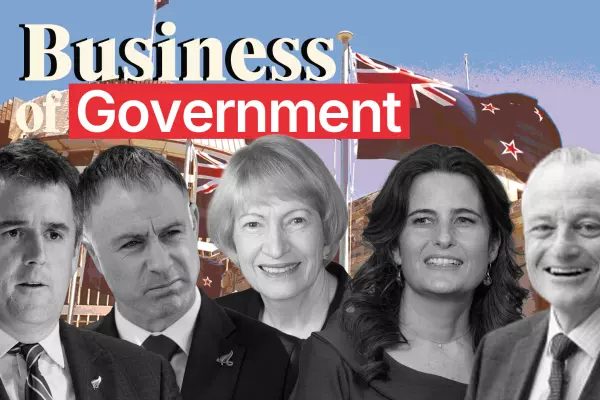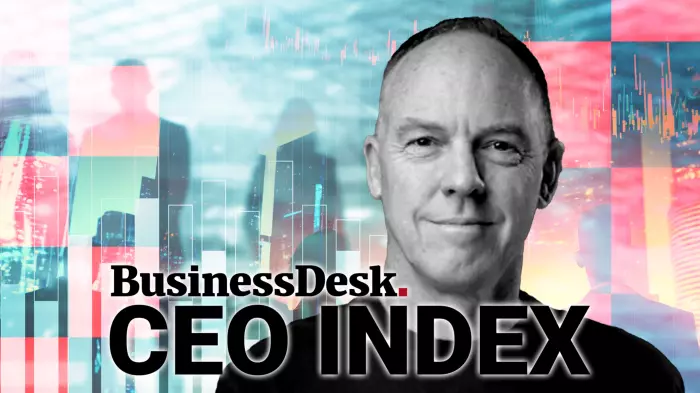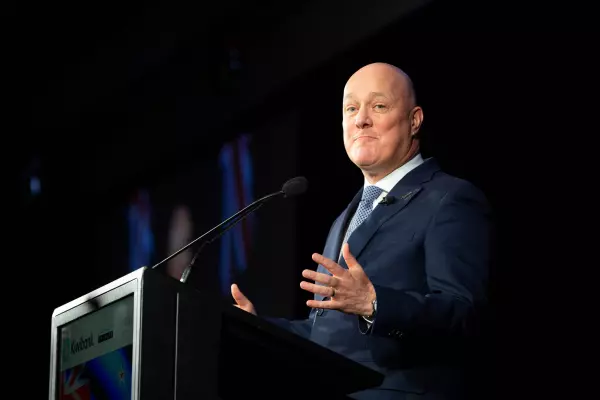If you’re a business owner who feels like they’ve lost control of their revenue forecasts this year, then relax: you’re not alone.
Actually, don’t relax.
In fact, never relax.
That’s what trading through the pandemic demands, along with a focus on cashflow management more intense than perhaps at any time since, or even during, the global financial crisis.
“Gone are the days when you do your accounts just before the GST’s due,” says Sarah Walker, a director at Hastings accounting firm, Epplett & Co.
Nor is it an easy time to be advising clients.
“Looking back at some of the assumptions we made a few months ago, it’s so crystal ball-gazing; we have no idea.”
Walker isn’t just talking clients who saw their businesses tank during lockdowns and struggle to recover.
“We’ve seen businesses go from zero to double what they would normally trade. It’s just ridiculous.”
 Sarah Walker
Sarah WalkerWith some businesses experiencing an ongoing burst of demand – some car yards are having trouble finding new stock, she says – business owners are being challenged to plan in an environment where a sudden trend to spend more at home or locally might be sustained – or not – and when the next lockdown could be next week, next month, or possibly never.
The risk of another sudden closure is always just one case of covid-19 community transmission away until a vaccine is developed and arrives.
This could go on for a while
The Treasury based its most recent forecasts on the expectation covid will keep our borders closed for all of next year, giving local business owners as clear a steer as exists that there’s at least another 15 months of this uncertainty ahead.
Nor is this a time when many businesses can expect a sympathetic ear from their bank – especially if you haven’t already developed a strong personal relationship with your account manager, says Auckland chartered accountant Luke Kemeys.
“Banks are asking for cashflow forecasts which aren’t worth the paper they’re written on,” he says. Businesses that might need their banks’ help “need to get into their bank early.”
Also if you don’t have personal property to secure lending against, forget it, he says.
A strong, existing relationship with your account manager is also likely to make a big difference, he says.
Know your banker
“Clients with historic relationships will in a better position than those who will be dealing almost on a retail basis” with their bank.
Be aware though that banks are swamped at present with business customers coping with the same range of challenges. No matter what the government says about guaranteeing 80 percent of bank lending to businesses up to a total of $6.5 billion, there has been limited appetite for the scheme, with just $176 million lent under it.
Far more popular is the small business cashflow loans scheme, which has turned the tax department into a source of small, one-off loans that are interest-free for the first year, capped at $10,000 plus $1,800 per full-time employee.
As of Oct. 2, the Inland Revenue Department had lent almost $1.6 billion to close 103,777 businesses, with the scheme extended for applications until the end of this year.
“We’ve got clients who’ve grabbed the IRD loan and are sitting on it for 12 months to see if they need it,” says Walker. “We’re seeing some quite positive cash balances at the moment, but that’s quite false because that money is on loan from the IRD.”
Kemeys advises firms not to spend money they’re holding in the kitty for things that haven’t happened yet, while acknowledging this is the nub of the challenge faced by events companies, which typically take in revenue from ticket sales to fund spending on performers and equipment.
With the constant threat of another lockdown forever present, that is particularly the kind of exposure that lenders will baulk at.
 David Bell, Xero
David Bell, XeroOver at accounting software firm Xero, director of business growth David Bell is getting a nationwide snapshot of small business trading conditions every day.
Even at Xero itself, he says “at a business/chief financial officer/finance team level, it’s extraordinarily challenging to forecast our own business: what to push forward on; what to hold back on.”
Constant reforecasting
At the peak of the level four lockdown in April, Xero was “reforecasting every half-day.”
“Everyone has relaxed a bit now,” he says. “Like anything that’s challenging, you start to build an acceptance and start taking brave decisions and be a bit more robust about it.”
There are also some obvious steps all businesses should be taking to deal with how difficult the forecasting environment has become.
Perhaps unsurprisingly for a firm whose whole aim is to help small businesses move off paper-based systems and harness the information that sits in every business, Bell cites “data, data, data” as the starting point for everything.
“Get on top of every piece of information and get it as real-time as possible,” he advises. “Those who do day-to-day data will do better than those who don’t. That’s not just financial data, but whole of business.”
Payment and invoicing habits are also critical, as is keeping the lines of communication with both customers and suppliers.
At a time when supply chain disruptions are also becoming commonplace – Bell cites a chronic shortage of mountain bikes at present as one example – being the customer who pays their bills either on time or, even better, immediately will put you ahead of the slow payer who’s also in the queue.
Changing usual trading behaviour to get paid earlier is another option that too few businesses are considering, says Kemeys.
“Kiwis are very good at billing for the 20th of the following month. Consider renegotiating your terms. Require a deposit.”
Kemeys also urges business owners to consider “sharing vulnerably” their financials with their employees.
 Luke Kemeys
Luke Kemeys“There’s a lot of a false sense of businesses being massive money pits,” he says. “Most small business owners take their staff home with them every night in their thoughts and emotions and they don’t want to fail them, but staff don’t know they are down to their last few thousand dollars in the bank.”
Walker warns business owners who’ve got this far through the covid disruption to be realistic about the next months.
“I think the tail will drag out further,” she says of the prospect for business failures. “Wage subsidies and the IRD loan scheme has propped some businesses up for months. But there’s now no reason to continue that support and some of those businesses in a poor cash position or who don’t spend their money well will face some challenges.
“It’s just a matter of how long that’s going to take.”
Tips of the trade for cashflow forecasting in times of deep uncertainty:
- Invoice early, enforce your terms: Make payment terms immediate or within seven days. If you can, seek pre-payment in part or in full. Actively chase when your invoices aren’t paid. Stay polite, but be firm. You are not another business’s bank;
- Pay your invoices on time, early, or immediately: Fast payers will be rewarded. Slow payers will be remembered and sent to the back of the queue;
- Pay your tax: not paying GST or PAYE will catch up with you, especially if you start missing employees’ KiwiSaver contributions. They will notice and they won’t thank you for it;
- Be smart with your tax provisioning: Cash set aside for tax can still be used to meet cashflow needs, if done with discipline, says accountant Sarah Walker. Smart use of tax pooling services can also squeeze more from your tax provisioning, if needed;
- Digitise your business: if you’re still using paper-based systems, you’re setting yourself up to under-perform and, possibly, fail compared to the businesses succeeding in your field;
- Rolling budgets are inevitable: company budgets are always out of date the moment they’re finished. That is more the case than ever. Getting close to your numbers every day should mean a better run business anyway. That will pay dividends when the post-covid recovery comes;
- Have a buffer: easy to say, hard to achieve for many under-capitalised NZ businesses. Luke Kemeys suggests having cash reserves capable of covering six months of fixed costs in the bank is a good target; three months’ payroll should be a bare minimum unless you have access to working capital from sources other than your bank;
- Keep it simple: “Don’t have a mega-spreadsheet,” says Kemeys. Having a good handle on how the next three months looks is a good start;
- Understand your cashflow cycle better: in these times, total focus on the bottom line is less important than ensuring you’re getting cash in the door, says Walker;
- Treat your people well: those who are not will leave at the first opportunity when things pick up;
- Talk to your bank before you need to: if the first time you meet your local branch account manager is when you need an emergency cashflow loan, the likelihood is it won’t come fast or at all. Remember the old saying: when it rains, that’s when the bank asks for its umbrella back;
- Use the IRD small business cashflow loan scheme: it’s interest-free for the first year and the sums you can borrow are not large. If you don’t feel your business is likely to be able to pay a small, interest-free loan back, it might be time to think about whether the business should really be trading at all. A wide range of small business advice is also available free from government agencies:
- Do you need all that space? Cutting short a long term commercial lease is never going to be easy, but if it’s coming up for renewal, talk to your landlord. Walker says some smaller private landlords are willing to deal to keep good tenants in place rather than sit on empty premises in a downturn. Large-scale property owners may be harder to persuade;
- There is no magic formula: “No one knows,” says Sarah Walker when it comes to how best to forecast in the time of covid. “Some of the assumptions we’ve made have been blown out of the water.” If you trade better than expected, “make sure you don’t spend it all,” she says.
- You are not alone: “You don’t need to be an accountant to diagnose what people are dealing with at the moment,” says Kemeys;
- Look after yourself: business owners will be spending more time working ‘on’ than ‘in’ their businesses in many instances at the moment. That will be a good thing in the end for those that thrive. However, your staff, shareholders and loved ones also rely on business leaders to take care of themselves. Finding ‘me’ time may seem the hardest thing right now, but it’s more important than ever.















